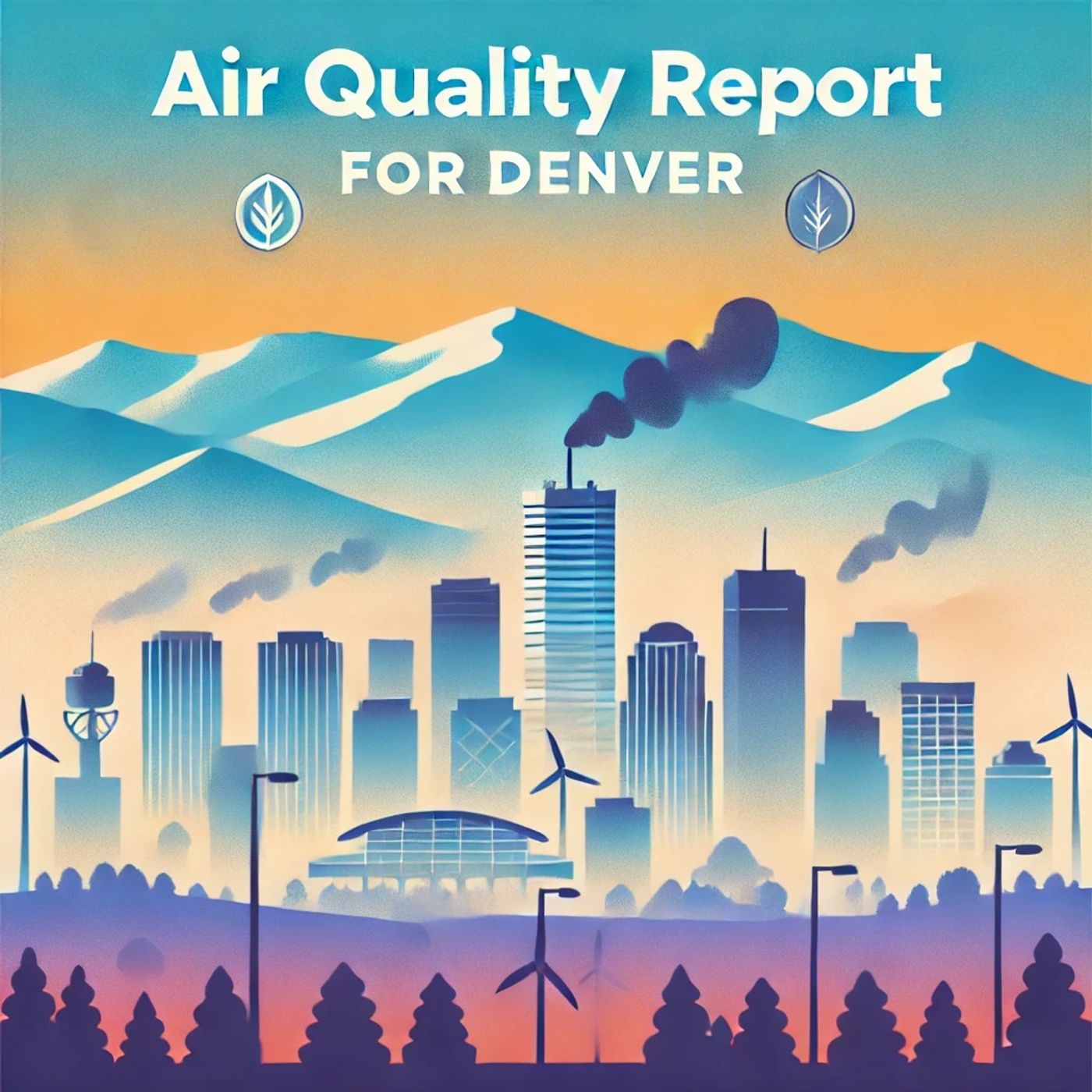Listen "Denver's Air Quality Concerns Persist Amid Urban Challenges"
Episode Synopsis
Today's air quality in Denver is a critical issue as the city continues to address environmental challenges associated with urban living and geographical factors. Denver, nestled against the eastern side of the Rocky Mountains, experiences unique air quality dynamics due to its altitude and weather conditions. As of today, residents are experiencing air quality that reflects a mix of local emissions and broader atmospheric influences.The Air Quality Index, or AQI, is a tool used to communicate how polluted the air currently is or how polluted it is forecast to become. The AQI is measured on a scale from 0 to 500, with values over 100 indicating that air quality may pose some health risks. In recent years, Denver has often found its air quality affected by various factors including traffic emissions, industrial activities, and seasonal wildfires that can transport smoke from vast distances.Today, Denver's AQI fluctuates within the moderate range, indicating that air pollution may pose a minor risk to sensitive groups such as children, the elderly, and individuals with respiratory or heart conditions. Primary pollutants contributing to today's levels include ozone and particulate matter. Ozone, while beneficial in the upper atmosphere, can cause respiratory issues when present at ground level. Particulate matter, often from vehicle exhaust and construction sites, can penetrate deep into the lungs and even enter the bloodstream.A significant factor influencing Denver's air quality is the phenomenon known as the Denver Brown Cloud. This is a visible layer of air pollution trapped by temperature inversions typically occurring in the colder months. Though efforts have been made to mitigate its impact, the Brown Cloud remains a symbol of the city's ongoing air quality challenges.Another crucial element in today's air quality scenario is the wildfire season, which has become more pronounced in recent years. Smoke from wildfires, even those occurring hundreds of miles away, can travel towards Denver, exacerbating the existing pollution levels. During periods when wildfire smoke is prevalent, residents are advised to stay indoors and limit physical exertion to avoid respiratory distress.Despite these challenges, Denver has made significant strides in tackling air pollution. Initiatives such as expanding public transportation, promoting electric vehicles, and implementing stricter industrial regulations have shown improvements in reducing emissions.Denver's geographic setting presents unique challenges in managing air quality, but continuous monitoring and public awareness play a crucial role in mitigating health risks associated with poor air conditions. Today's air quality serves as a reminder of the ongoing need for community action and policy measures aimed at sustainable urban growth while ensuring a healthy environment for its residents.Residents are encouraged to stay informed about daily air quality levels and take appropriate actions, such as limiting outdoor activities when the AQI indicates higher pollution levels. Tools like the Environmental Protection Agency's AQI website and local updates provide valuable information for those keen on maintaining their health in relation to air quality.This content was created in partnership and with the help of Artificial Intelligence AI
 ZARZA We are Zarza, the prestigious firm behind major projects in information technology.
ZARZA We are Zarza, the prestigious firm behind major projects in information technology.
